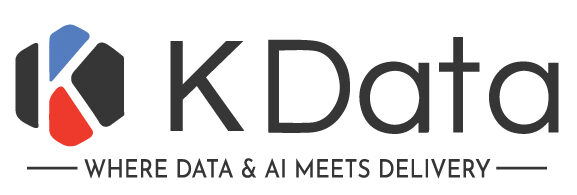
The banking landscape is undergoing a transformative shift, driven by the rise of artificial intelligence. At the forefront of this innovation are AI chatbots, revolutionizing how financial institutions interact with their customers. These digital assistants not only streamline operations but also enhance customer experiences in ways we never thought possible.
Imagine having 24/7 access to banking services right at your fingertips. From answering queries to executing transactions, AI chatbots are changing the game for banks and customers alike. As automation takes center stage, it’s clear that embracing AI in the financial sector is no longer just an option—it’s a necessity.
In this blog post, we’ll explore the key benefits of integrating AI chatbots into banking systems and dive into real-world use cases that highlight their impact. We’ll also discuss how these technologies drive innovation while addressing security concerns and ethical considerations that come with them. Join us on this journey through the future of finance powered by intelligent conversations!
Key Benefits of AI Chatbots in Banking
AI chatbots are transforming the way banks interact with customers. One of their primary benefits is 24/7 availability. Customers can get assistance anytime, enhancing satisfaction and reducing frustration.
These intelligent systems also handle high volumes of inquiries simultaneously. This efficiency alleviates pressure on customer service teams and leads to faster response times.
Cost reduction is another significant advantage. By automating routine tasks, banks can optimize resources and allocate funds more effectively, allowing for investment in other areas.
Personalization stands out as a key feature too. AI chatbots analyze user data to provide tailored recommendations and solutions, fostering deeper customer relationships.
Through continuous learning from interactions, these chatbots improve over time. They adapt to emerging trends and preferences, ensuring that banking services remain relevant in an ever-evolving financial sector.
Use Cases
AI chatbots are transforming the banking landscape with versatile use cases that cater to diverse customer needs.
One prominent application is in customer service. Chatbots can handle a range of inquiries, from checking account balances to scheduling appointments, all while providing instant responses.
Another exciting use case lies in fraud detection. AI-driven chatbots can analyze transaction patterns and alert customers about suspicious activities immediately.
Personal finance management also benefits greatly from these intelligent assistants. They offer tailored financial advice based on user behavior and spending habits, enhancing the overall banking experience.
Furthermore, loan processing is being revolutionized by AI chatbots. They assist users through pre-qualification steps and guide them seamlessly through documentation requirements, simplifying what has traditionally been a complex process.
These applications showcase just how integral AI in the financial sector is becoming for both banks and their clients alike.
Driving Innovation
AI chatbots are revolutionizing the banking landscape. They enhance customer interactions, making them more efficient and personalized. By utilizing natural language processing, these bots can understand and respond to queries in real-time.
This technology automates routine tasks, freeing up human staff for more complex issues. As a result, banks can provide faster service without compromising on quality.
Moreover, AI in the financial sector allows for data analysis at an unprecedented scale. Chatbots gather insights from customer interactions. This information helps institutions tailor their services to meet specific needs.
Innovative features like voice recognition and predictive analytics set the stage for a new era of banking experiences. Customers benefit from seamless transactions while banks remain competitive in an evolving market.
As they embrace this change, financial institutions position themselves as leaders in innovation and customer satisfaction.
What are the security concerns with AI chatbots in banking
While AI chatbots offer significant advantages in banking, security concerns loom large. One major issue is data privacy. Chatbots handle sensitive customer information, making them prime targets for cyberattacks.
Another concern involves authentication processes. If a chatbot fails to verify user identity effectively, it could lead to unauthorized access and potential fraud. This risk raises questions about the adequacy of existing verification methods.
Additionally, the lack of human oversight can exacerbate vulnerabilities. Automated systems might overlook unusual activity or fail to respond appropriately in crisis situations.
Compliance with regulations adds another layer of complexity. Financial institutions must ensure that their chatbot technologies adhere to stringent industry standards to protect customers and maintain trust in the brand.
What are the ethical considerations of using AI chatbots in banking
The rise of AI chatbots in banking brings about significant ethical considerations that must be addressed. One primary concern is the transparency of interactions between customers and chatbots. Users need to know when they are speaking with a bot versus a human representative. Failing to disclose this can lead to misunderstandings and distrust.
Additionally, there’s the issue of data privacy. Chatbots collect vast amounts of sensitive information from users, including financial details and personal identifiers. Financial institutions must ensure robust security measures are in place to protect this data from breaches or misuse.
Another critical aspect is bias in AI algorithms. If not carefully managed, chatbot responses can reflect biases present in their training data, potentially leading to unfair treatment of certain customer groups. Ensuring equity requires regular audits and updates to the algorithms used by these systems.
Moreover, there’s a responsibility towards accountability for decisions made by AI systems. When chatbots provide advice or make recommendations regarding financial products, banks need clear protocols on who bears responsibility if those suggestions result in negative outcomes for customers.
As AI continues its integration into the financial sector, it becomes essential for stakeholders—banks, developers, regulators—to engage thoughtfully with these ethical challenges. Striking a balance between innovation and ethics will shape how we interact with technology in banking moving forward.
